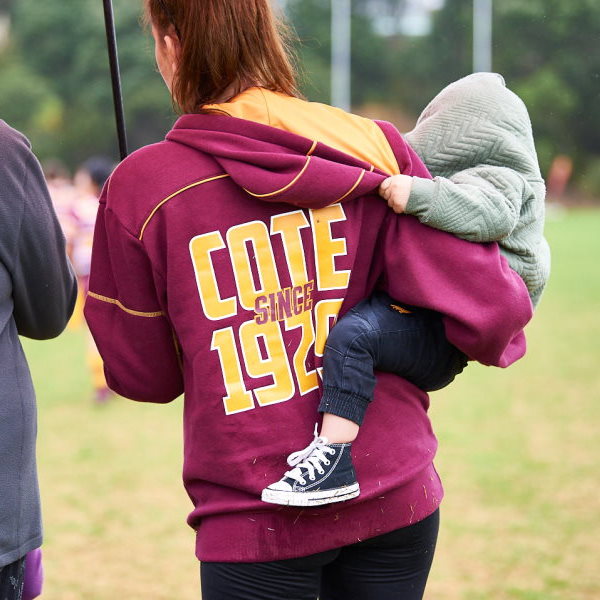
All
Great Sport Parents
Parents are a key part of the 'team' for every young person's sports journey. From taxi drivers to sideline supporters. Nutritionists to mental skills coach and a 'shoulder to lean on'. Read on about what makes a great sports parent from points taken from Sport NZ.
- Categorysupporting
- Last UpdatedJan 2022
Ultimately, great sports parents are much like people who are great in other roles. They take time to reflect. They grow their knowledge. They don't always get it right the first time, but they figure out quickly how to match their support with their children's needs.
Expert sports parents take time to ‘learn the trade’ of being a sports parent. A good place to start is understanding the 'why' your child plays sports. Studies show that these usually fall into having fun, being challenged, development and improvement, being part of a team or group and enjoying time with friends.
Fun
Fun is the most abstract concept as it means different things to each child. What is fun for one child is not so fun for another. One study found 81 'fun' things about the sport. As a parent, your job is to find out what are the fun things for your child and the importance of each one. With a little understanding of their 'why', you are in a strong position to support them.
Support
More than technical skills coaching or the best equipment and gear. Great sports parents are supporters. They ride the highs and the lows with their children, help put things into perspective and provide them with the opportunities to succeed.
Understanding what good emotional support for your child looks like (e.g. how do you support your child to deal with a tough loss?) This is what you are looking to learn. Working out how to provide good tangible support (how do you support your child with the logistics of a sport? e.g. travel.) Understanding what kind of information support your child requires (e.g. what advice can you provide your child to manage both sport and school?)
All this active support should to aimed at the child’s enjoyment and self-esteem in their sport. (It's not about your sporting desires and aspirations.) Studies show youth prefer support without pressure which means parents need to avoid providing technical or tactical advice, ensure comments focus on effort and attitude rather than performance.
But you know you have some great practical tips for them! But they don't want to listen. Did you ever listen to your parents? The first approach is to ask them if they want your help. Let them know you are keen to help them practice but it's ok if that's not what they want. Also, ensure you do it under their conditions. If they want to muck around with trick passes but what they really need to learn is how to do a normal pass. Do the trick passes.
Another approach is to coordinate with the coach. The coach can suggest some skills to practice at home. You can offer to help them do it. Having other adult influences promoting the same message can be powerful. Keep in mind that at home your child still has to want to do it. If you force them it will create pressure and we know this is not positive for them. Give them encouragement and entice them to get started and if they want to muck around with trick passes, do the trick passes.
Attitudes
Research has shown that generally greater positive outcomes are achieved when the experience is underpinned by parents demonstrating a style of parenting that has the right balance of structure but with the flexibility for them to have high levels of self-determination for their growth and development.
An example would be setting appropriate responsibilities for them around routines like organising uniforms and equipment, turning up and being on time for training. (Structure) While allowing them to interact, express themselves and learn in their own way. (Flexibility).
For yourself, there will be a range of emotions to manage. For instance, the disappointment or worry you feel or share with your child when they are upset or disappointed, or the embarrassment you feel as helpless bystanders if your child is underperforming or behaving poorly.
Managing such emotions is key when it comes to supporting children and it will enhance the experience for all involved, not put them off. It also serves to model back to children, good emotional intelligence.
Relationships
When children participate they interact with a range of people, including other parents, coaches, officials and organisers. Fostering and maintaining healthy relationships with other people in your child’s sporting network is important. Your relationships with children, coaches and other parents are vital when it comes to creating a positive sporting environment.
Studies have looked at the quality of those relationships and they come down to a number of factors. Self-esteem, enhancement and supportiveness, loyalty, things in common, companionships and play, and how you deal with conflict. In relationships where those factors were present, it resulted in higher levels of player enjoyment, perceived competence, self-determination, motivation and lower stress levels.
Parents in the same space developed positive coach-parent relationships, building trust and understanding, and appreciation for their work.
In fact, through positive interactions and behaviours, parents can minimise a coach’s stress by doing these things. Things like accepting the coach’s authority, not undermining their leadership and supporting the coach behind the scenes without interference.
Being a great sporting parent is a bit like a road trip. Kind of planned and with little time restrictions. Your the passenger ensuring they stick to the road rules while they are the drivers deciding the course.

